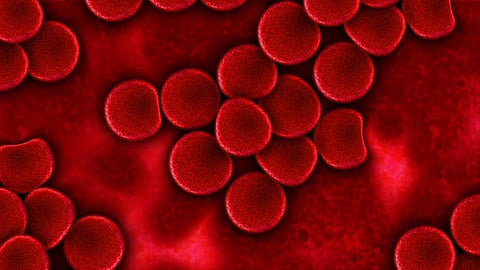

VIJAYAWADA: The State has achieved remarkable progress in its fight against anaemia by distributing 99.9% of adolescents (aged 10–19 years) with four Blue Iron-Folic Acid (IFA) tablets in schools and 106.8% of pregnant women with 180 Red IFA tablets during 2023–24.
These efforts have earned Andhra Pradesh the first place in anaemia prevention among adolescents and the second place for IFA supplementation in 2023–24, as reported in the recently released Socio-Economic Survey 2023–24. This recognition underscores the State’s commitment to reducing anaemia prevalence and achieving health-related Sustainable Development Goals (SDGs).
The State government, following the Anaemia Mukti Bharat (AMB) strategy, has implemented six key interventions, including regular anaemia testing and treatment. Data from screenings show anaemia prevalence rates of 34% among pregnant women and 50.47% among adolescent girls.
Under the Family Doctor Programme, medical officers visit village health clinics every 15 days to monitor pregnant women with moderate to severe anaemia. Treatments such as iron sucrose injections and blood transfusions are provided, and referral cases are supported by the free ‘Thalli Bidda Express’ transportation service.
Adolescent girls, both school-going and non-school-going, undergo quarterly anaemia testing. Their nutritional data is shared with the education department to ensure dietary support, while school teachers supervise the daily consumption of IFA tablets for three months following mid-day meals.
For children aged 6–59 months, 83.7% received IFA syrup, while 94.9% of children aged 5–9 years were covered under the Weekly Iron Folic Acid Supplementation (WIFS) Junior programme. IFA supplementation for lactating mothers also improved significantly, with coverage reaching 91.6% in 2023–24. The government has intensified awareness campaigns, conducted biannual deworming drives, and addressed non-nutritional causes of anaemia such as malaria, hemoglobinopathies, and fluorosis. Nutritional supplementation through Anganwadi centres, fortified rice, and enriched foods has further strengthened these efforts.
The biannual deworming programme covers children aged 2–19 years, and pregnant women receive a single 400 mg Albendazole tablet during their second trimester. A total of 2,42,87,153 Albendazole tablets were distributed in 2023–24. Behavior Change Communication (BCC) campaigns are carried out year-round by field staff, including ANMs, and Anganwadi centres. A line list of anaemic pregnant women is shared with the Women and Child Development (WCD) department, enabling Anganwadi centres to provide nutritional supplements under Sampoorna Poshana Plus. Schools contribute by distributing fortified rice, chikkis, ragi malt, and other nutritious foods through the mid-day meal programme.
In endemic pockets, the State addresses non-nutritional causes of anaemia and ensures prophylactic iron and folic acid supplementation at various intervals for pregnant women and adolescent girls.